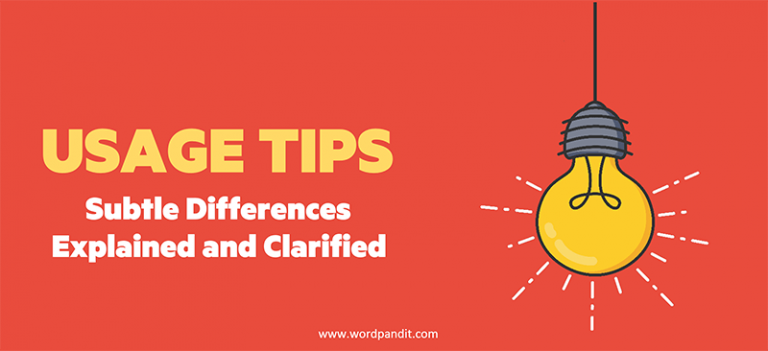Doubtful vs. Dubious: Clearing the Confusion ✨
Ever been in a situation where you’re unsure if something is trustworthy or if you simply have doubts? 🤔 Perhaps you’ve wondered whether to use “doubtful” or “dubious.” You aren’t alone—these words are easy to mix up, but understanding their subtle differences can make all the difference. Let’s untangle this confusion so you can use them with confidence. 💡
Both of these words are commonly used to express uncertainty, but they do so in slightly different ways. The more we understand their nuances, the better we can use them to communicate our exact feelings and impressions. Whether you’re describing your own hesitation or casting doubt on the credibility of something, knowing which word to use can make your language clearer and more effective.
What Do They Mean? 🤷♂️
- Doubtful (dout-fuhl): It refers to having doubts or being uncertain about something. When you’re doubtful, you aren’t sure if something will happen or whether it is true. 😕 This word emphasizes an internal state of mind—a feeling that something might not be right or that something may not occur as expected.
- Dubious (doo-bee-uhs or dyoo-bee-uhs): This word is often used to describe something or someone that seems suspicious or not to be trusted. If a claim or promise is dubious, it raises questions about its reliability. 🤨 It implies a sense of skepticism or mistrust about the object or person in question, often suggesting that something is “too good to be true.”
Etymology 📜
- Doubtful comes from the Middle English doutifull, derived from Latin dubius, meaning “uncertain” or “to waver.” The word evolved to express feelings of uncertainty, especially regarding future events or outcomes. The history of the word gives us insight into why it focuses more on internal hesitation rather than suspicion.
- Dubious also comes from the Latin dubius, but it carries an added layer of suspicion or skepticism—suggesting that something is questionable. 🤔 The Latin roots hint at wavering or having two minds about something, which evolved into implying distrust or suspicion over time.
How to Use Them Correctly ✅
- Doubtful: When you are unsure about something, you can say, “I am doubtful about attending the event tomorrow.” It emphasizes uncertainty or hesitation. 🤷♀️ This word is all about personal feelings of indecision or hesitation, often used to describe future possibilities or outcomes.
- Dubious: When you are suspicious or think something lacks credibility, you could say, “The salesman made a dubious promise about guaranteed profits.” It suggests that the claim might not be trustworthy. 😒 This word is perfect for situations where something seems shady or untrustworthy, and it conveys a stronger sense of skepticism.
Synonyms and Antonyms 🔄
- Doubtful: Synonyms include uncertain, unsure, hesitant. Antonyms include confident, assured. 💭 When you are feeling doubtful, you might be hesitating or second-guessing, feeling unsure of what might happen.
- Dubious: Synonyms include suspicious, questionable, uncertain. Antonyms include credible, trustworthy, reliable. 🕵️♂️ When something seems dubious, it means it appears to be lacking in credibility, raising doubts in the minds of others.
How to Tell the Difference? 🤔
Think of doubtful as an internal feeling of uncertainty—you are unsure if something will happen. Dubious, on the other hand, often refers to something external that seems untrustworthy or not credible.
For example, if you are uncertain about an event occurring, you feel doubtful. However, if someone makes an extravagant claim that sounds too good to be true, you find it dubious. In other words, doubtful focuses on personal hesitation, while dubious highlights external suspicion. This distinction is key to using these words accurately.
Example: If you were promised a trip to the moon 🌕 by next year, you might feel doubtful about going because it seems impossible. However, if the person making the promise has a sketchy background, you might call that promise dubious. 🚀❓ The promise itself is dubious because it raises red flags, while your feeling about the trip is doubtful because you aren’t sure it will happen.
Mnemonic Device 🧠
- To remember doubtful, think of “full of doubt.” It’s about what you personally feel. 🤷♂️ If you’re hesitant or unsure, you’re feeling doubtful.
- For dubious, think of “dubious deeds” that sound shady or suspicious. It’s about the nature of the claim or person. 🕵️♀️ If something seems fishy or untrustworthy, it’s dubious.
Related Words 📚
Uncertain vs. Ambiguous: These words often join the ranks of confusing pairs. Like doubtful and dubious, they share the theme of uncertainty but with different nuances. Uncertain means not having a clear, definite answer, while ambiguous means something is open to more than one interpretation. Knowing these differences can help add precision to your communication.
Test Your Knowledge: Abdication vs. Addiction Quiz
1. The king’s decision to step down from the throne was seen as an act of ___.
2. He struggled with his ___ to gambling, which affected his personal life.
3. Abdication refers to voluntarily giving up a position of power or responsibility.
4. Which word is a synonym for ‘Addiction’?
5. His ___ to social media has become a major concern for his mental health.
6. Which of the following best describes giving up control or responsibility, often in a formal manner?
7. The prince’s ___ from his royal duties shocked the nation, while his brother struggled with a severe ___ to alcohol.
8. Which word comes from Latin meaning ‘to renounce or resign formally’?
9. Addiction can be used to describe a habit that is hard to break, while abdication refers to the act of giving up power.
10. The leader’s ___ of his responsibilities left the country in chaos, while the citizens struggled with growing ___ to entertainment and distractions.













